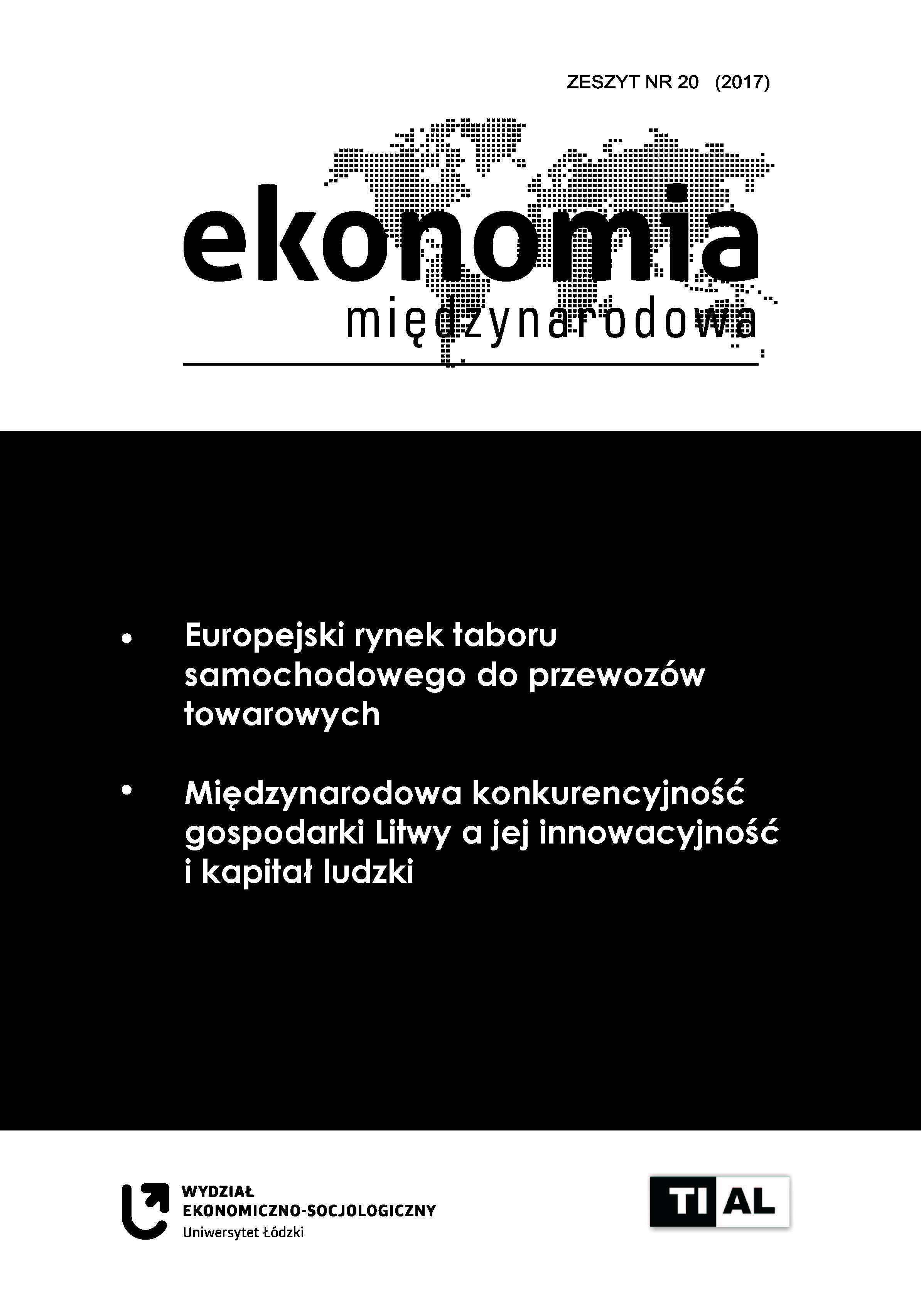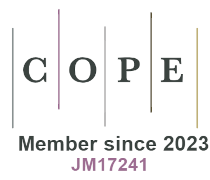International competitiveness of Lithuania and human capital
DOI:
https://doi.org/10.18778/2082-4440.20.03Keywords:
international competitiveness of the economy, human capital, Lithuanian economyAbstract
The main goal of any economy is to have a strong competitive position, which is increasingly dependent on human capital. The purpose of this article is to present human capital as a factor that influences the international competitiveness of the Lithuanian economy in the years 2006–2016. To achieve this goal reports WEF were used. This article consists of three parts. The first one is devoted to theoretical aspects of international competitiveness and human capital. The second part examines changes in the competitive position of the Lithuanian economy in the period 2006–2016 based on the Global Competitiveness Index prepared by the WEF. Finally, the last part presents an analysis of Lithuania’s human capital in the years 2006–2016 and the problems that occur. From the analysis of international competitiveness and human capital, it can be concluded that human capital is an important determinant of the competitiveness of the Lithuanian economy. It is also worth noting that Lithuania has been ranked among the 50 most competitive economies in the world.
References
Borowski J. (2015), Koncepcje teoretyczne konkurencyjności międzynarodowej, „Optimum. Studia Ekonomiczne” nr 4.
Google Scholar
DOI: https://doi.org/10.15290/ose.2015.04.76.02
Bossak J., Bieńkowski W. (2004), Międzynarodowa zdolność konkurencyjna kraju i przedsiębiorstw. Wyzwania dla Polski na progu XXI wieku, Szkoła GłównaHandlowa w Warszawie – Oficyna Wydawcza, Warszawa.
Google Scholar
Domański S. R. (1993), Kapitał ludzki i wzrost gospodarczy, PWN, Warszawa.
Google Scholar
Falkowski K. (2013), Międzynarodowa konkurencyjność gospodarek Białorusi, Rosji i Ukrainy, Szkoła Główna Handlowa w Warszawie – Oficyna Wydawcza,Warszawa.
Google Scholar
Firszt D., Jabłoński Ł. (2016), Kapitał ludzki i innowacje a zmniejszanie luki rozwojowej między krajami, CeDeWu sp. z o.o., Warszawa.
Google Scholar
Listwan T. (2005), Słownik zarządzania kadrami, Wydawnictwo C.H. Beck, Warszawa.
Google Scholar
Misala J. (2007), Międzynarodowa zdolność konkurencyjna i międzynarodowa konkurencyjność gospodarki narodowej, Politechnika Radomska, Warszawa.
Google Scholar
OECD, www.oecd.org/general/searchresults/?q=competitiveness (data dostępu: 15 maja 2016).
Google Scholar
Schultz T. (2001), Investing In People. The Economics of Population Quality, University of California.
Google Scholar
Schultz T. (2014), Ekonomia kapitału ludzkiego, Oficyna a Wolters Kluwer business, Warszawa.
Google Scholar
The Global Competitiveness Reports, www.weforum.org/reports (data dostępu: 1 czerwca 2017).
Google Scholar
The Human Capital Report (2013), http://reports.weforum.org/human-capitalindex-2013 (data dostępu: 2 czerwca 2017).
Google Scholar
The Human Capital Report (2015), www3.weforum.org/docs/WEF_Human_Capital_Report_2015.pdf (data dostępu: 2 czerwca 2017).
Google Scholar
The Human Capital Report (2016), http://reports.weforum.org/human-capitalreport-2016 (data dostępu: 2 czerwca 2017).
Google Scholar
World Economic Forum, www.weforum.org/agenda/2016/09/what-is-competitiveness (data dostępu: 15 maja 2016).
Google Scholar
Woźniak M.G. (2008), Wzrost Gospodarczy. Podstawy teoretyczne, Wydawnictwo Uniwersytetu Ekonomicznego w Krakowie, Kraków.
Google Scholar
Wronowska G. (2012), Kapitał ludzki ujęcie teoretyczne, Wydawnictwo Uniwersytetu Ekonomicznegow Krakowie, Kraków.
Google Scholar
Downloads
Published
How to Cite
Issue
Section
License

This work is licensed under a Creative Commons Attribution-NonCommercial-NoDerivatives 4.0 International License.









